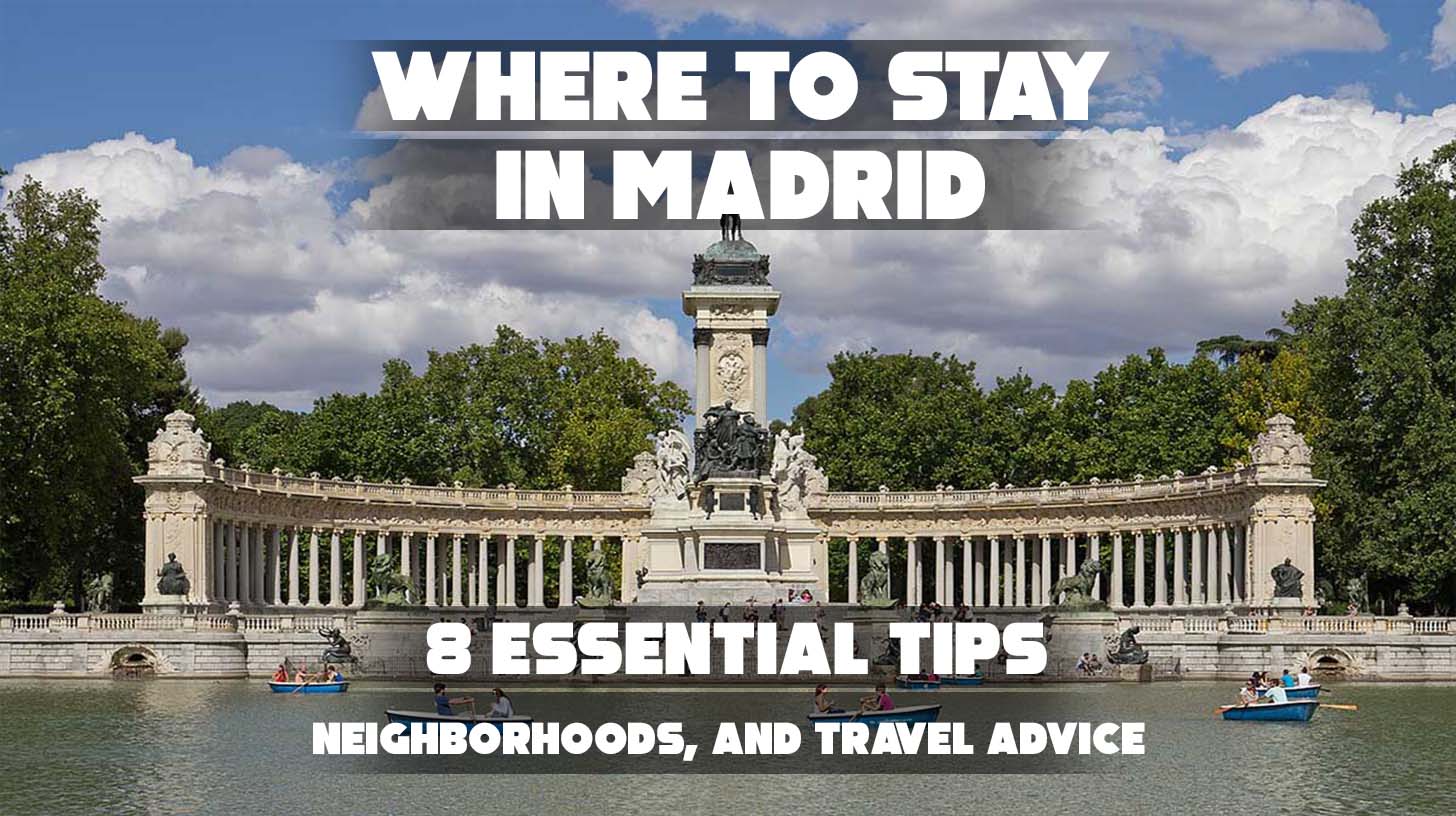Ever wondered what makes a Pakistani wedding so magical, emotional, and unforgettable? If you’re dreaming of a celebration that’s colorful, cultural, and deeply meaningful, then you’re in the right place.
You’re not just someone curious about traditions; you’re the seeker of stories, the one who values ritual, community, and love wrapped in centuries-old customs.
We’re here to guide you through 8 Pakistani wedding traditions, with insights rooted in cultural knowledge and heartfelt storytelling.
Discover iconic events like:
- Mehndi & Dholki nights full of music and laughter
- The sacred Nikah and emotional Rukhsati
- Festive rituals like Joota Chupai
Keep reading to explore these eternal ceremonies and see how each moment links love, family, and tradition into a celebration of a lifetime.
Let’s travel into a world where every ritual tells a story; and by the end, you’ll see how these weddings are not just events, but experiences.

What are Pakistani Wedding Traditions?

Pakistani weddings are truly a feast for the senses; dynamic, colorful, and filled with heartfelt moments that stretch across several days.
From the joyful Mehndi night, where the bride’s hands glow with complex henna designs amid music and dancing, to the grand Baraat procession welcoming the groom with drums and celebration, each event weaves family, culture, and faith into a beautiful tapestry.
These traditions don’t just mark a union between two people but celebrate the blending of families and communities with warmth and joy.
Step inside this world of eternal rituals; the solemn Nikah ceremony that seals the couple’s vows, the emotional Rukhsati as the bride departs her childhood home, and the festive Valima where loved ones gather to honor the new marriage.
Every tradition, from the playful Joota Chupai shoe game to the delicate Ubtan pampering, tells a story of love, respect, and hope for the future.
Join us as we explore the enchanting customs that make Pakistani weddings unforgettable celebrations of life and togetherness.
1. Mangni

Mangni is a delicate and heartfelt beginning to the path of love and togetherness in Pakistani weddings. This formal engagement ceremony is where two families come close, exchanging rings, gifts, and blessings in a warm, intimate setting.
It’s more than just an announcement; it’s a sacred moment filled with prayers and promises, where the couple and their loved ones gather to bless their future and seal their loyalty with symbolic exchanges and joyful rituals like cake cutting.
In the quiet joy of Mangni, the couple’s travel truly begins as they receive the good wishes of their elders and the loving support of their families. It’s during this ceremony that the wedding date is lovingly decided, setting the stage for the celebrations to come.
Whether the gathering is small or grand, Mangni holds a special place in every heart; a beautiful blend of tradition, hope, and the promise of a shared life ahead.
See Also Pakistani Costumes
2. Nikah
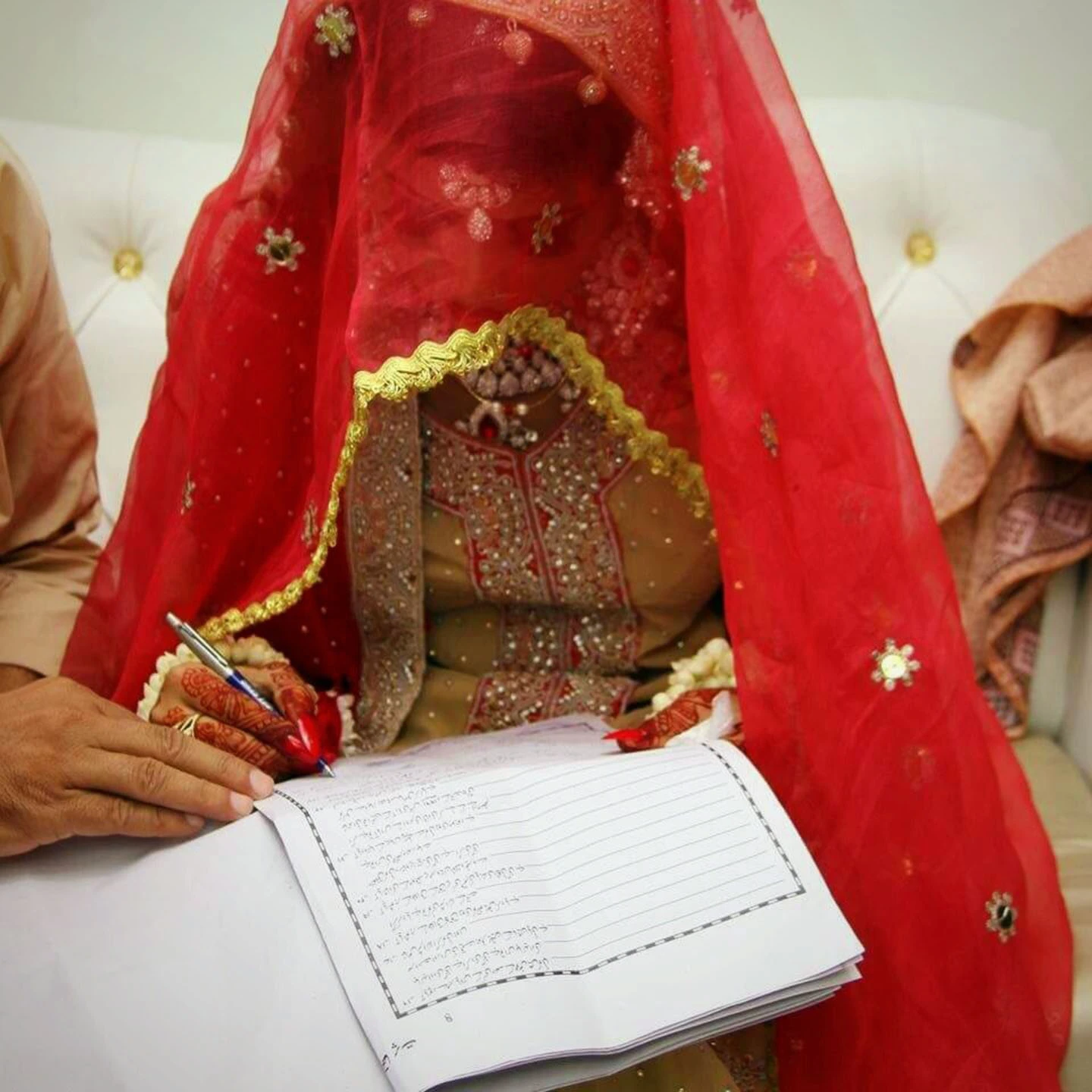
Nikah is the sacred heart of a Pakistani wedding, where two souls come together not just in love but in a solemn and binding loyalty before God and family.
In this intimate gathering, the bride and groom exchange vows, recite verses from the Quran, and sign the Nikahnama; the marriage contract that seals their promise to one another.
Surrounded by loved ones and blessed by a religious officiant, every word and gesture echoes with deep meaning, as the couple starts on their shared path of faith, trust, and lifelong partnership.
More than a legal formality, Nikah is a beautiful blend of spirituality and tradition, where the groom presents the Mahr, a gift symbolizing respect and care for the bride. The presence of witnesses ensures that this union is entered freely and sincerely, reflecting both love and responsibility.
As families unite and prayers rise, the atmosphere becomes one of hope and joy; a heartfelt celebration of the beginning of a new chapter, forever linked with faith and family.
3. Baraat Procession
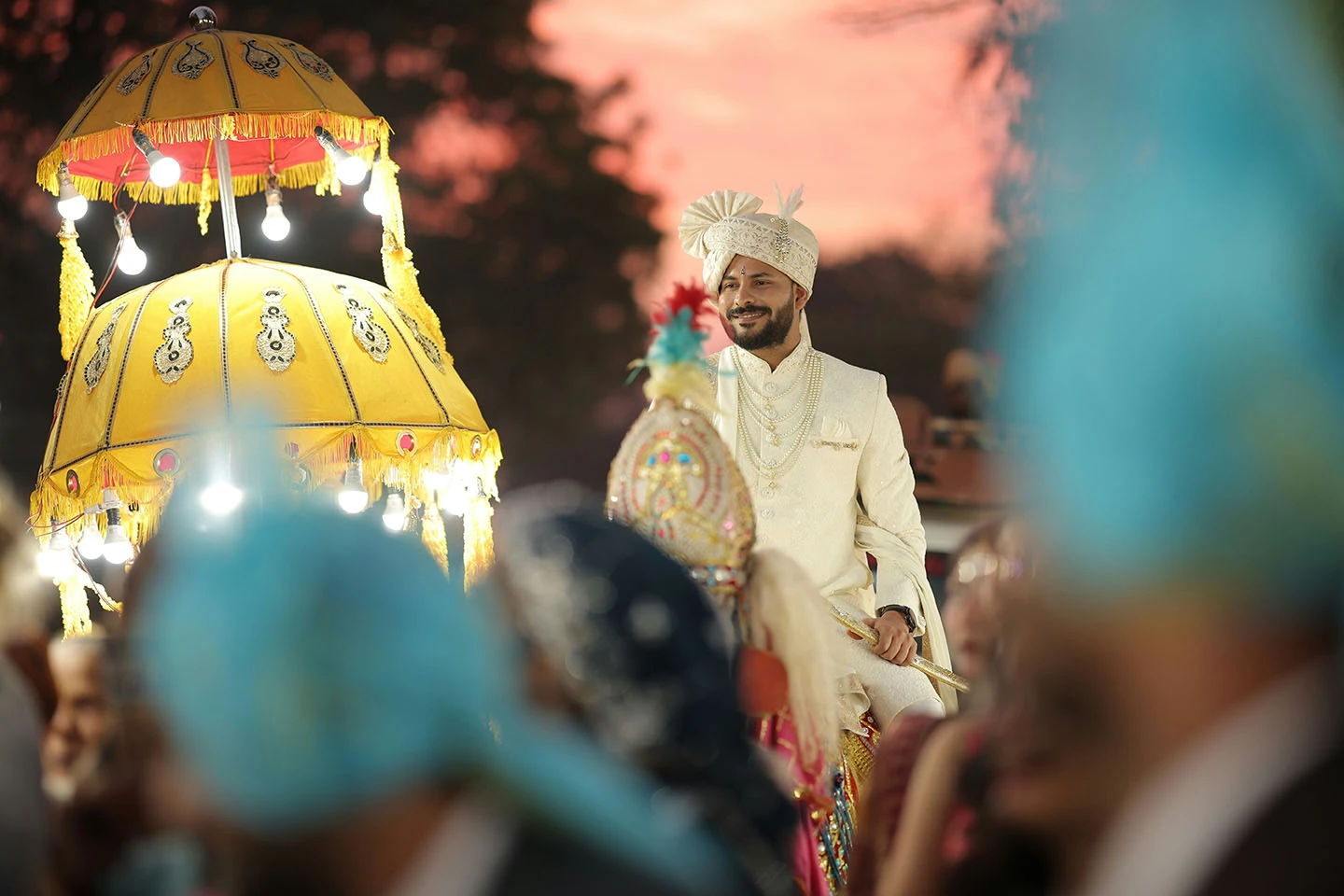
The baraat is one of the most heartwarming and lively moments in a Pakistani wedding, where the groom arrives surrounded by his loved ones, filled with joy and anticipation.
Dressed in his elegant sherwani and turban, sometimes riding a beautifully adorned horse or a luxury car, he leads a procession alive with music, dancing, and celebration.
The rhythmic beats of the dhol and the melodies of the shehnai fill the air, as family and friends dance their way to the wedding venue, welcoming the happiness of the day. It’s a beautiful symbol of the groom’s path toward his bride and the joyous merging of two families.
As the baraat reaches the bride’s home or venue, the atmosphere becomes even more electric, with the bride’s family welcoming the procession with open hearts and showering flower petals, a delicate gesture full of love and blessings.
This moment marks the official start of the wedding festivities; a vivid, emotional celebration of love, tradition, and unity.
The baraat not only heralds the union of two souls but also the coming together of families, filled with hope and the promise of a shared future.

4. Rukhsati
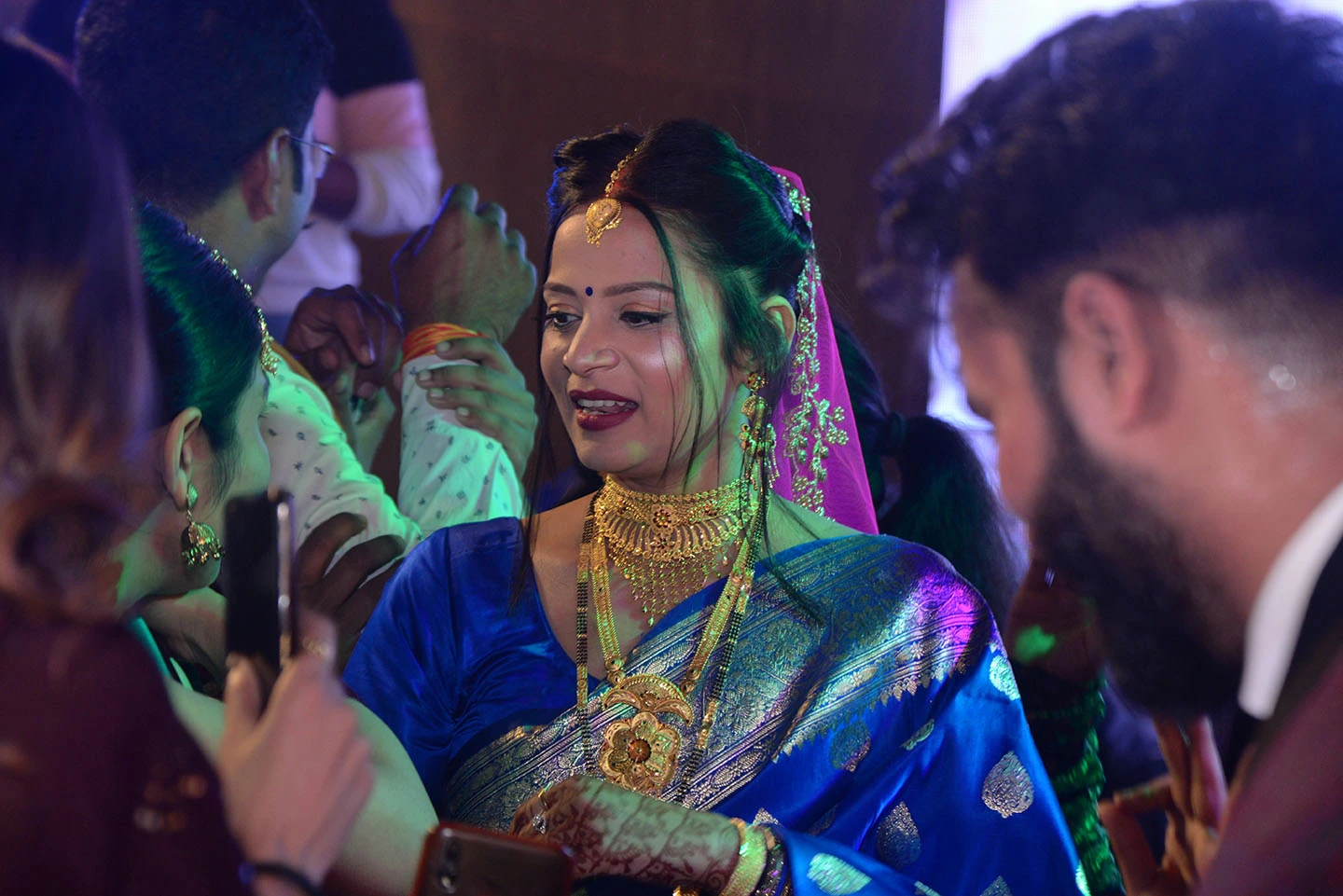
Rukhsati is one of the most loving and emotional moments in a Pakistani wedding; a quiet, powerful goodbye wrapped in love and tears. After days of celebration and joy, the bride gently parts from her parents, siblings, and the home where she grew up.
With each hug and tearful farewell, hearts grow heavy, yet proud.
The soft ritual of throwing rice behind her, known as chawar ji rasam, is deeply symbolic; a final blessing to her family, a prayer for abundance, and a silent thank you for all the love that raised her.
As the groom and his family gently escort the bride to her new home, Rukhsati becomes more than a tradition; it is the soulful bridge between two families, between her past and her future. It’s not just a departure, but the beginning of a new life.
Though filled with emotion, there’s beauty in every teardrop and every held hand; a deep, quiet acknowledgment that love is growing, transforming, and expanding into something new.
5. Walima
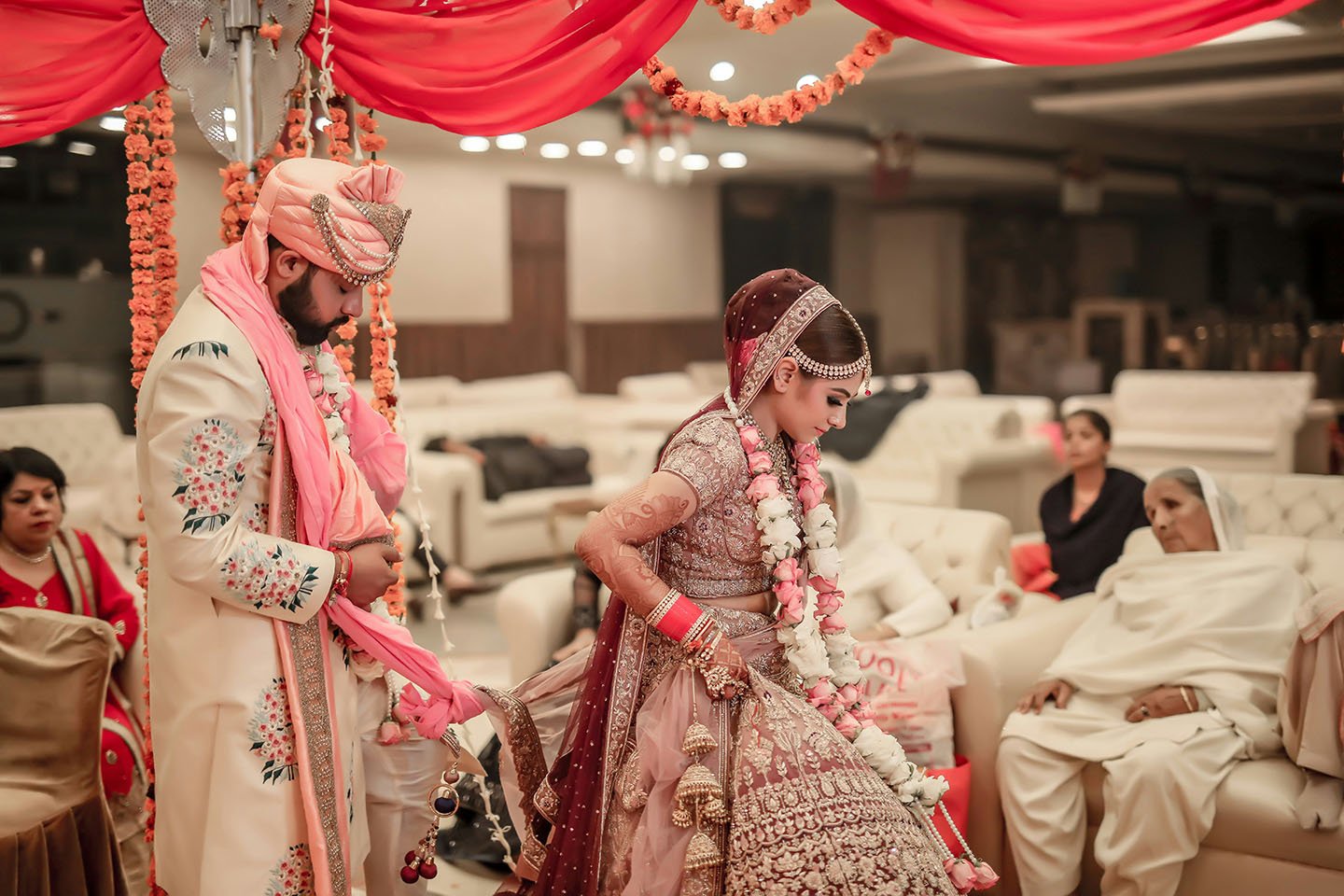
The Walima is the final chapter in a Pakistani wedding; a warm, joyful celebration that gently closes the wedding festivities with grace.
Hosted by the groom’s family, the Walima is more than just a feast; it’s a heartfelt gesture of welcome and gratitude. After the solemnity of the Nikah and the emotion of Rukhsati, the Walima brings everyone together in a spirit of shared happiness.
Laughter fills the air, plates overflow with fragrant dishes, and every handshake and hug feels like a blessing; a communal ewelcome of the couple’s new life.
There’s a quiet elegance to the Walima; a balance of tradition, faith, and celebration. It’s here that the union is made public, not just by words but through the presence of community. Whether held in a grand hall or a simple gathering, what matters most is the joy in every smile and the prayers whispered between sips of tea.
The Walima doesn’t just celebrate a marriage; it celebrates the blending of two families into one, gently, lovingly, and with the promise of new beginnings.
6. Dholki Night
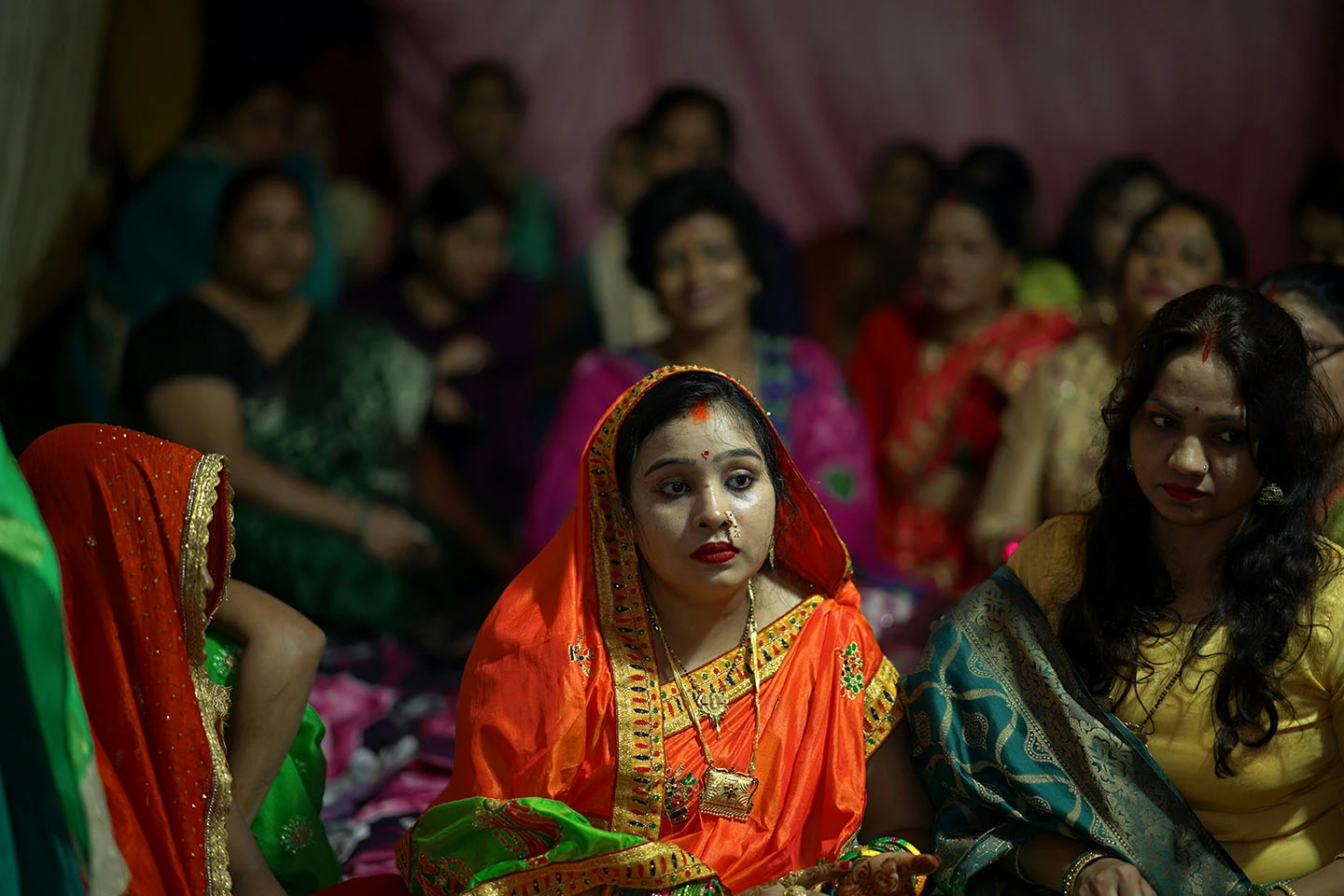
The Dholki night is where a Pakistani wedding truly comes to life; a gathering of women bound by love, laughter, and tradition. It’s held in the bride’s home or a cozy venue filled with soft lights, warm food, and the echo of the dholak drum.
Sisters, cousins, and friends sit in a circle, clapping and singing age-old songs that tease the bride, gently preparing her for the journey ahead.
The air is rich with the scent of mehndi, the shimmer of bangles, and the rhythm of feet dancing in joy. It’s an evening of celebration woven with memories, where every giggle and every note becomes a blessing.
More than just a pre-wedding festivity, Dholki is a space for emotional closeness and bonding. It’s where secrets are shared in whispers, songs are passed down like heirlooms, and the bride is showered with heartfelt wishes and playful banter.
There’s an intimacy in its informality; the way hands come together to decorate the bride with henna, the way voices rise together in laughter. Dholki night isn’t just about music or tradition; it’s about love expressed through rhythm, stories, and sisterhood.
See Also Pakistani Culture
7. Mayun
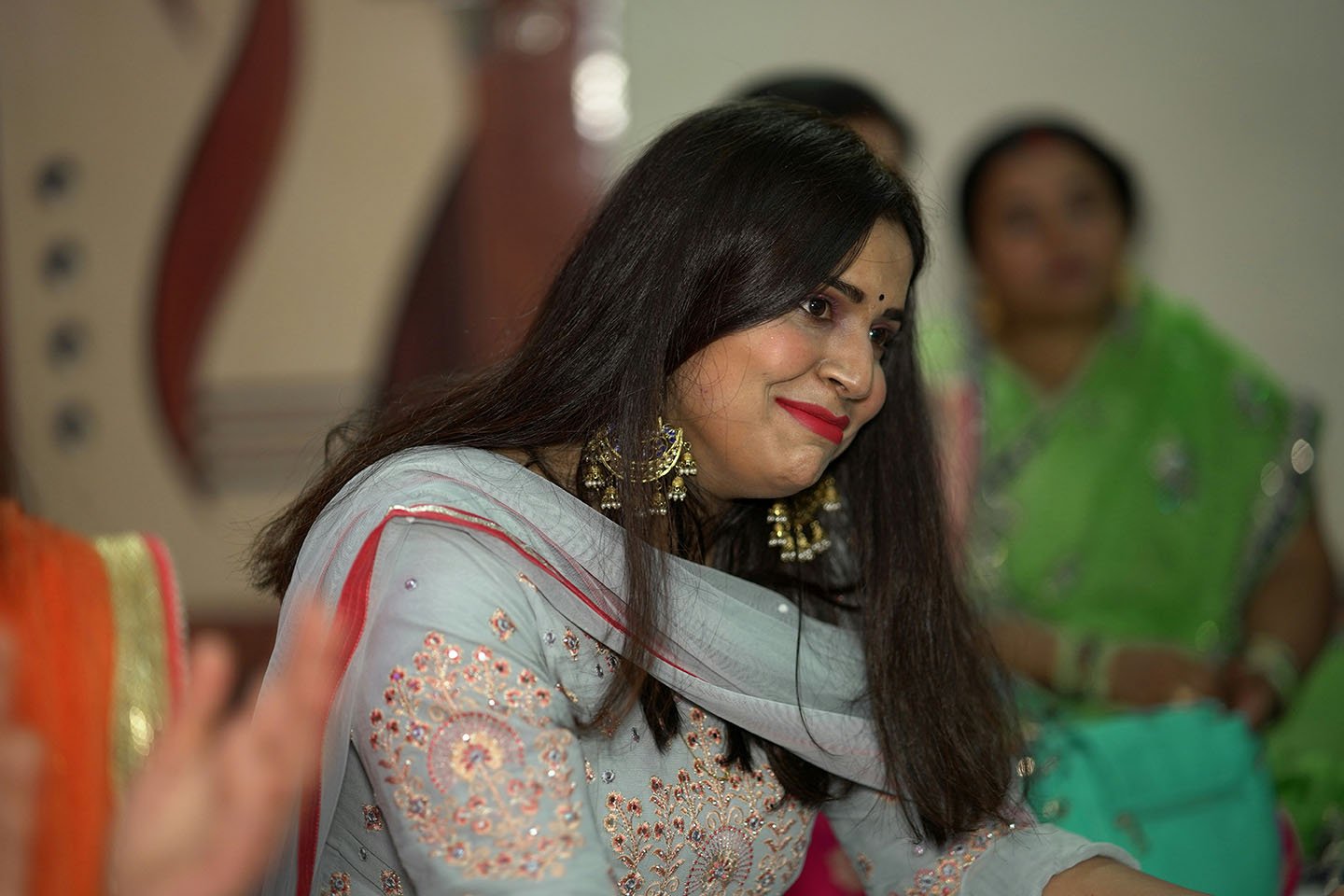
Mayun is one of the most delicate and intimate moments in a Pakistani bride’s wedding travel; a gentle pause before the rush of celebration begins. In this quiet time, the bride is lovingly shielded from everyday chores and even from seeing the groom.
Surrounded only by the women closest to her, she’s pampered with ubtan; a warm, golden turmeric paste, carefully applied to her face and hands.
The ritual isn’t just about beauty; it’s a spiritual cocooning, led often by grandmothers and older relatives, filled with blessings, songs, and soft laughter that echo through generations.
There’s something deeply sacred and feminine about Mayun. It’s not about grandeur, but about closeness; a soft gathering in living rooms or courtyards, decorated with marigolds, fairy lights, and affection.
Friends and cousins feed the bride sweets, slip floral jewelry onto her wrists, and sing old folk songs that carry both joy and nostalgia.
The bride, makeup-free, glowing naturally under the care of those who love her, sits quietly; half shy, half excited, cradled in the warmth of tradition and love. It’s not just a ceremony; it’s a memory being stitched into her heart forever.
8. Joota Chupai
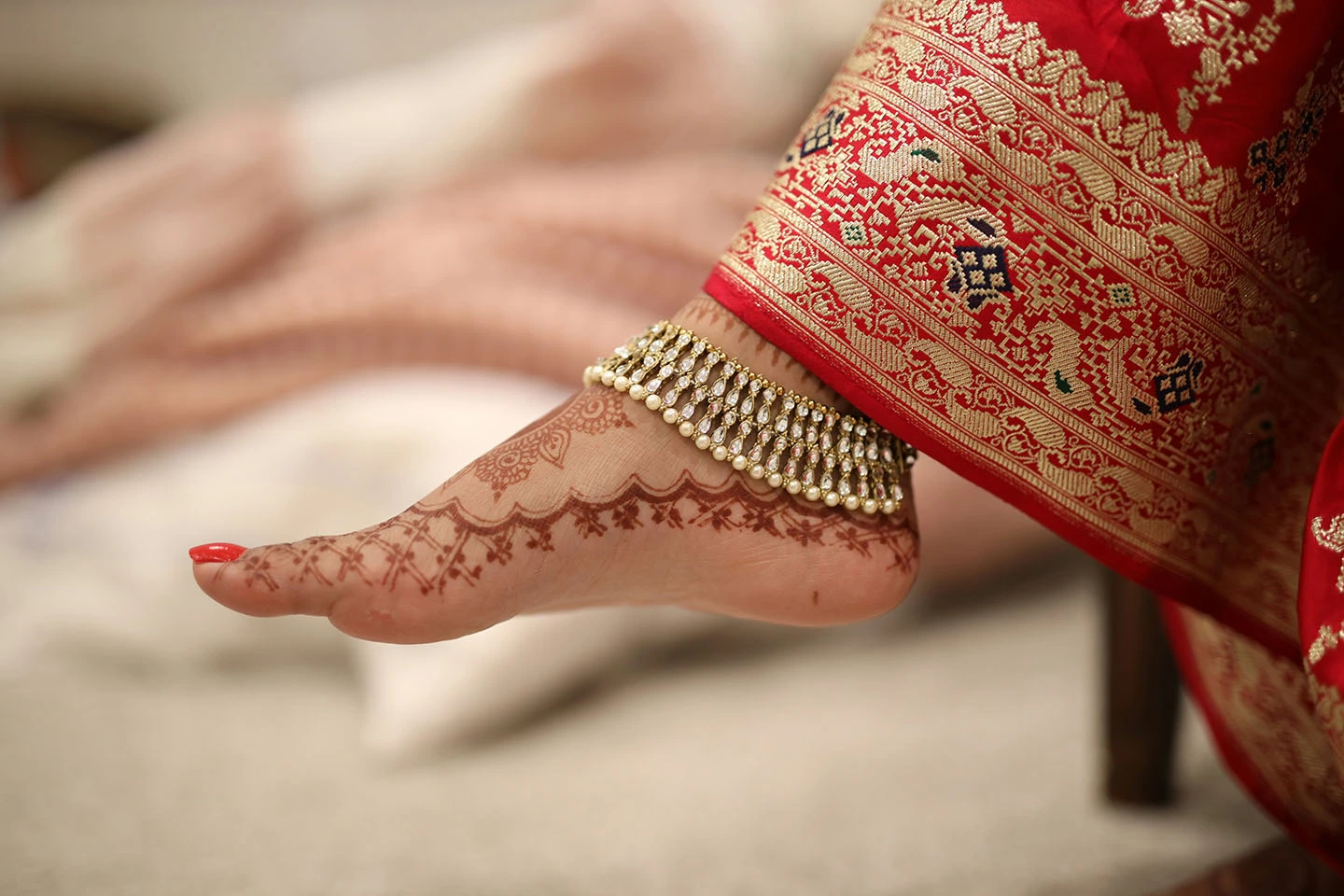
Joota Chupai is one of those charming little rituals that turn a wedding into a memory you’ll laugh about for years. As the groom walks in with all the grace and pride of a wedding day, the bride’s sisters and cousins have their eyes not on him; but on his shoes. In a flash of giggles and whispered plans, his precious mojari vanish.
What follows is a spirited dance of negotiations, clever teasing, and joyful chaos as the girls demand a “ransom”; sometimes cash, sometimes playful gifts, before the shoes are finally returned. It’s not just about footwear; it’s about bonding, banter, and blending two families through laughter.
What makes Joota Chupai truly intimate is the warmth behind the mischief. In a setting filled with regal clothes, solemn ceremonies, and emotional farewells, this playful tradition allows everyone to breathe, laugh, and connect.
The groom’s amused defeat, the bride’s knowing smile, the sisters’ victorious cheers; it’s all part of a moment that says, “We’re family now.”
It’s love dressed in humor, sealed with laughter, and stitched into the wedding day like a hidden thread of joy.
Pakistani Wedding Traditions: A Recap
Pakistani weddings are lively celebrations rich in culture, faith, and family bonds that unfold over several meaningful days. Each tradition; from the intimate Mangni engagement and the sacred Nikah links to the lively Baraat procession and emotional Rukhsati farewell, tells a unique story of love, respect, and togetherness.
Festivities like the joyous Dholki night, the gentle Mayun pampering, and the playful Joota Chupai game bring warmth, laughter, and closeness, blending communities and generations.
Finally, the gracious Walima feast unites everyone in shared happiness and blessings for the couple’s new travel. Together, these rituals create an unforgettable textile celebrating not only the union of two souls but the beautiful merging of families and hearts.



